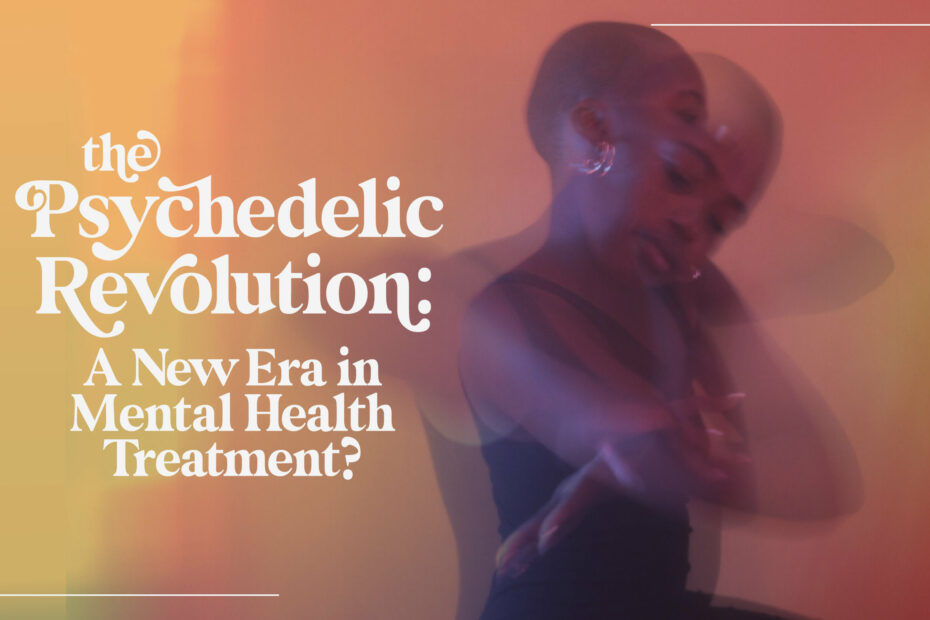Psychedelic drugs, also known as hallucinogens, are classified into two types: classic (such as LSD, MDMA, ayahuasca, peyote, and psilocybin) and dissociative (such as PCP and ketamine). These drugs can alter an individual’s perceptions, moods, and thoughts. While these drugs are well-known for their recreational use, recent research has shown that they can help treat mental health disorders when other treatments are ineffective. However, it’s essential to remember that these drugs should only be used under the supervision of licensed healthcare professionals.
Psilocybin
“Researchers report that two doses of the psychedelic substance psilocybin, given with supportive psychotherapy, produced rapid and large reductions in depressive symptoms, with most participants showing improvement and half of the study participants achieving remission through the four-week follow-up.”
Also called “shrooms” or “magic mushrooms,” psilocybin is a natural substance found in naturally occurring hallucinogenic mushrooms. They can be used either fresh or dried and can produce feelings of euphoria, a distorted sense of reality, and hallucinations. Many studies have shown that they reduce signs of depression but have been cautioned to be used under direct medical supervision. Several states and cities in the United States are legalizing or decriminalizing psilocybin for therapeutic or recreational purposes. For example, Oregon and California have legalized psilocybin for mental health treatment in a supervised setting as of February 2021.
MDMA
MDMA is known as a party or nightclub drug and is commonly referred to as ecstasy or Molly. It is a psychoactive drug with stimulant properties. It is known to heighten arousal and senses, produce feelings of euphoria, increase feelings of empathy and self-awareness, and produce hallucinogen effects. Research is tapping into MDMA’s effects as part of therapy to help treat severe posttraumatic stress disorder (PTSD). This mental health trauma-related disorder affects 3.5% of adults in the United States. PTSD can occur after an individual experiences a traumatic, life-threatening event such as a severe accident, sexual abuse, or war. Memories of this traumatic event may reappear as flashbacks or nightmares. Individuals may take extreme measures to avoid anything associated with the event (avoidance). Individuals may also experience negative changes in thinking or mood. Researchers and mental health clinicians believe that the emotions elicited from MDMA may create an ideal setting for individuals with severe PTSD to open up about challenging emotions, engage in self-reflection, and work through triggering events. MDMA-assisted therapy sessions involve administering a dose of MDMA in a supervised setting. At the same time, at least two psychotherapists are present to help you work through any feelings or emotions that arise during this session. The MDMA study is still awaiting approval from the FDA, meaning it may be a year or more before it is used in clinical practice.
Ketamine
Commonly referred to as “Special K,” ketamine is a dissociative hallucinogen that can produce “out of body” feelings in addition to visual and sensory distortions, unusual thoughts and beliefs, and feelings of euphoria. In 2019, the FDA approved a form of ketamine called esketamine (brand name Spravato) for depression. This nasal spray is for adults who have treatment-resistant depression or who are suicidal. Individuals continue their antidepressants and receive esketamine at a doctor’s office or in a clinic under medical supervision, where they are monitored for two hours after receiving the dose.
It is important to note that when used for recreation or not under medical supervision for a diagnosed mental health condition, each of these substances can have unwanted and potentially dangerous side effects, especially when mixed with other substances, including alcohol. In addition, some experts believe that using these hallucinogens for mental health treatment can be controversial, and therefore not all practitioners or treatment centers provide access to these specific treatments.
Seeking help at AKUA Mind and Body
AKUA Mind and Body is a full-service addiction and mental health treatment center with multiple locations across California. We believe in treating the individual and not just the disorder and have a team of mental health experts who have experience in treating those who have mental health disorders or substance use disorders. No matter your range or severity of symptoms, our treatment staff works together to find the best individualized treatment. Our team at AKUA Mind and Body wants to help you navigate through this challenging journey and seek out a healthy and successful recovery.




